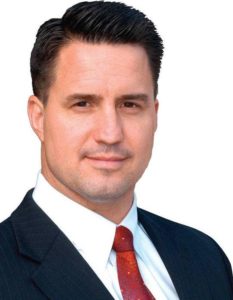
As most Americans are aware, the United States Supreme Court heard oral arguments in the Dobbs v. Jackson Women’s Health Organization abortion case. The Court will decide the constitutionality of a 2018 Mississippi state law banning abortion operations after the first 15 weeks of pregnancy. Based on questions by Justices, many legal experts believe the Court will hold the Mississippi law constitutional, and this could upend the 1973 Roe v. Wade decision, and the later 1992 “Casey” decision made “viability” of the unborn, then at 24 weeks, as the key time. As a result, the left has engaged in fear mongering. Emblematic of the false hyperbole, Democratic US Senator Jeanne Shaheen recently exclaimed: “If you want to see a revolution go ahead, outlaw Roe v. Wade”. It’s time for truth about Roe v. Wade and what overturning it would really mean for America.
First, the life of the woman at the center of Roe v. Wade is instructive. Norma Jean McCorvey, known as “Jane Roe”, was the plaintiff of Roe v. Wade. McCorvey sought an abortion in Texas in 1969, but couldn’t due to a Texas abortion ban. Two activist pro-abortion lawyers pressured McCorvey (by McCorvey’s account) into bringing the case to the Supreme Court. The Supreme Court held that an alleged general right to privacy was wide-ranging enough to encompass a woman’s right to choose an abortion. McCorvey’s baby was born during litigation and then put up for adoption.
Norma Jean McCorvey. Photo courtesy WikiWand.
The Court in Roe v. Wade displayed activism in usurping law-making authority, and did not follow its Constitutional duty of deciding by the original meaning of the Constitution.
As the late Justice Antonin Scalia wrote of the proper means of Court interpretation: “It is perfectly clear that the original intent was that the Constitution would be interpreted by its original meaning.” Scalia also noted Supreme Court activism leading to Roe: “Originalism was the constitutional orthodoxy in the United States until… the post-World War II Warren Court.”
The Roe Court did not follow the usual and established rules of construction to interpret the Constitution. The Court acknowledged that the Bill of Rights does not include the general and absolute right to privacy encompassing abortion, but claimed “penumbras and emanations” from the Bill of Rights allowed the Court to infer such a right.
Contrast the 1973 Court to the more orthodox Supreme Court of the early 20th century.
The political push for women’s suffrage gained traction in the early 20th-century. The Supreme Court could have used “penumbras and emanations” to find women’s right to vote in the 14th Amendment. Instead, it determined that the original meaning of the 14th Amendment equal protection clause did not cover this issue.
The political process rightly determined this issue, and lawmakers passed the 19th Amendment making women’s suffrage a Constitutional right. That right has remained uncontroversial and accepted by all, unlike abortion. The Roe decision has arguably caused the most contentious and divisiveness in US history.
Unlike the hyperbole of Progressives like Sen. Shaheen, if Roe is overturned abortion is not “outlawed”. States like California and New York will continue to allow virtually unrestricted abortion. Conservative states will likely place restrictions on abortion. Of course, travel between states is wide open, as it is the freedom to move to states of one’s choosing.
More than 61 million babies have been killed in 47 years of legalized abortion. Photo courtesy Texas Right to Life.
McCorvey’s later life illuminates the moral bankruptcy of the pro-abortion movement with respects to Roe v. Wade and the surrounding false rhetoric.
Within a decade of Roe v. Wade, McCorvey admitted that she only wanted an abortion because she had been depressed. She admitted she had been used as a “pawn” of abortion activists. McCorvey accepted Jesus Christ in 1994, and became a pro-life activist. In 1995, she published “I am Roe” and began work with the pro-life group Operation Rescue.
In 2005, McCorvey petitioned the Supreme Court to overturn Roe v. Wade. She attempted to claim standing as litigant in the 1973 decision but was denied. McCorvey spent her final years begging for the end of abortion until her death in 2017 (Note: In 2020, FX published a video by Progressive attorney Gloria Allred of McCorvey in poor condition before she died. In the video, McCorvey appeared to recant her pro-life stance. However, according to former Planned Parenthood leader turned pro-lifer, Abby Johnson, McCorvey called her days before dying expressing remorse over abortion. According to Johnson: “I don’t have a problem believing that in the last year of her life that she tried to convince herself abortion was OK. But I know at the end of her life, she did not believe that.”
The end of Roe v. Wade may come with the Supreme Court’s opinion in Dobbs, and if so the Court will have helped reverse the activism from 1973. The American people will again have the final word over this most critical of issue.

We at The Standard put our necks on the line to report and bring news to you on sometimes “touchy subjects” others would prefer remain ‘behind the curtain’. Support Independent journalism! The Standard does not have billion dollar corporations or political bosses directing what we can and cannot print in our news. We print what people really want to know! And that information is more critical now than ever! You know how important it is to get proper news information—support that information source!



 RSS - Posts
RSS - Posts